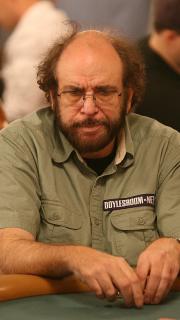
Aggression opens up two winning opportunities:
1. You can force your opponent to fold better cards than yours;
2. You can win more when you hold better cards and the opponent is inclined to pay.
By using check and call, you only win with better cards, but you do not control the pot. There are other reasons, confirmed by Caro himself, which are related to money but not directly to the game. They are not related to the strategy of playing individual hands, but they belong to what Dan Harrington describes as “Metagame.” These are elements of poker that characterize the game itself over a long period and many players.
Aggression in the “Meta” game is closely related to the hormone testosterone, its effect on our psyche, and self-confidence. Experience also plays an important role here. Let me briefly talk about it from a medical perspective.
Testosterone is an anabolic steroid that, like other steroids, originates from cholesterol (you probably thought this substance only clogs your arteries). Mainly, this steroid is produced in male organs and in very small amounts in females.
It has a significant impact on internal body processes, such as muscle growth, body building, sexual arousal, and bone stability. Additionally, it affects psychological processes, alertness, and of course, aggression.
The connection between testosterone levels and poker
The theory has long suggested that the direct connection between testosterone levels and poker is aggression. However, I am not aware of any scientific study that confirms this. If such a connection exists, it is relatively complex, as we know that hormone levels depend on many factors. Let's take a look at one scientific study that is very useful for poker players.
Scientists selected a young monkey that was relatively far from the tribe's hierarchy and had a low testosterone  level. Let's call him Max. Poor Max was constantly attacked by other aggressive monkeys.
level. Let's call him Max. Poor Max was constantly attacked by other aggressive monkeys.
Then came science, and with it, salvation. Scientists caught a monkey that was higher in the hierarchy than Max and calmed it down a bit with medical drugs. Then Max won his first fight and took his opponent's place in the hierarchy pyramid.
This was just the beginning of the experiment. After a series of such fights, Max climbed higher and higher in the hierarchy. Max was doing better and better. As he climbed higher in the hierarchy, Max's testosterone level also increased. He gained weight, became stronger, more independent, and acted confidently. The monkeys that used to intimidate him now avoided him.
So the idea is quite clear. Testosterone is not a biological constant. Its level changes due to experiences and can be manipulated.
Let's get back to poker. Everyone knows that the one who plays better wins more, just as it is true that better play happens when winning. Win a couple of pots in a row, and hormone levels already rise. We increase our chip stack, and self-confidence grows. We knock out a couple of opponents from the table and start playing more aggressively. We feel strong and confident – this is a decisive factor, and opponents sense it.
Self-confidence is a necessary condition for aggression to arise, which immediately provides an opportunity to win, but first changes the power dynamics in the “Meta” game, as shown by the example with Max. We feel confident, self-assured, and positive.
There is also another side to high testosterone levels. Too high a testosterone level can cause excessive aggression. This is not necessarily bad, as Mike Caro said: “too much aggression is rarely a mistake.” The more aggressively you play, the bigger the “swings” and the more dramatic the variation. This becomes a problem only when you cannot control yourself psychologically.
Author: Arthur S. ReberBorrowed from: http://www.pokerzeit.com/aggressivitat-testosteron-selbstbewusstsein-pokerstrategie






